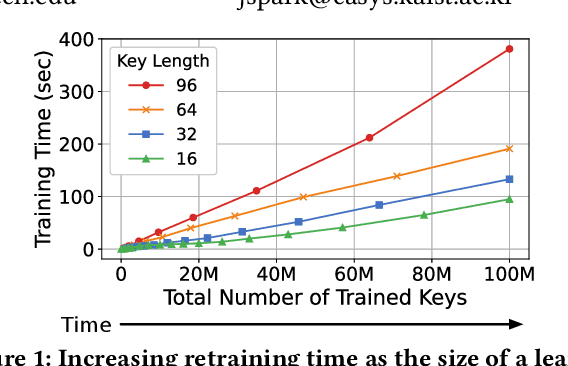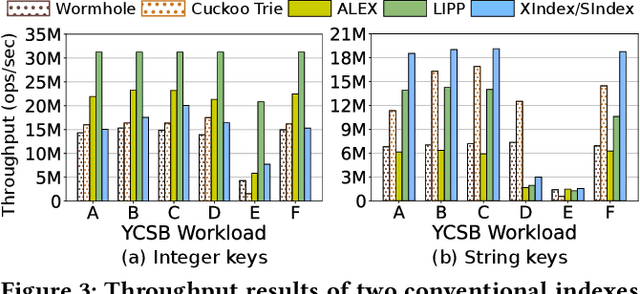Accelerating String-Key Learned Index Structures via Memoization-based Incremental Training
Paper and Code
Mar 18, 2024



Learned indexes use machine learning models to learn the mappings between keys and their corresponding positions in key-value indexes. These indexes use the mapping information as training data. Learned indexes require frequent retrainings of their models to incorporate the changes introduced by update queries. To efficiently retrain the models, existing learned index systems often harness a linear algebraic QR factorization technique that performs matrix decomposition. This factorization approach processes all key-position pairs during each retraining, resulting in compute operations that grow linearly with the total number of keys and their lengths. Consequently, the retrainings create a severe performance bottleneck, especially for variable-length string keys, while the retrainings are crucial for maintaining high prediction accuracy and in turn, ensuring low query service latency. To address this performance problem, we develop an algorithm-hardware co-designed string-key learned index system, dubbed SIA. In designing SIA, we leverage a unique algorithmic property of the matrix decomposition-based training method. Exploiting the property, we develop a memoization-based incremental training scheme, which only requires computation over updated keys, while decomposition results of non-updated keys from previous computations can be reused. We further enhance SIA to offload a portion of this training process to an FPGA accelerator to not only relieve CPU resources for serving index queries (i.e., inference), but also accelerate the training itself. Our evaluation shows that compared to ALEX, LIPP, and SIndex, a state-of-the-art learned index systems, SIA-accelerated learned indexes offer 2.6x and 3.4x higher throughput on the two real-world benchmark suites, YCSB and Twitter cache trace, respectively.
 Add to Chrome
Add to Chrome Add to Firefox
Add to Firefox Add to Edge
Add to Edge